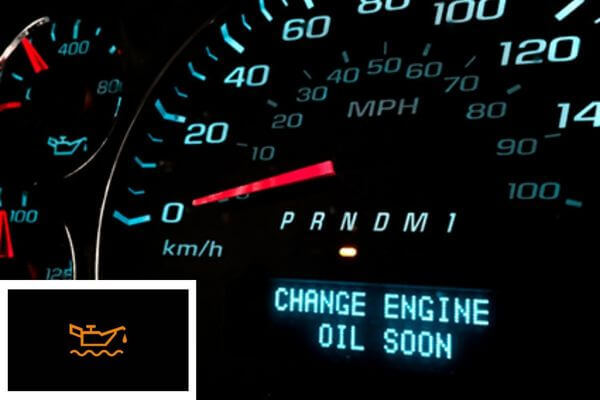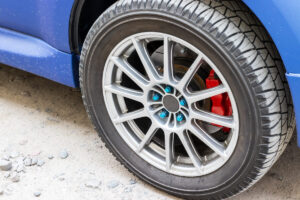An oil leak may seem like a minor issue initially, but it can quickly become costly and dangerous if left unaddressed. Not only can it damage your engine and other components, but it can also pose a serious hazard to you and other drivers on the road.
Common oil leak symptoms include a burning smell while the vehicle runs, smoke emanating from the engine, and overheating. Worn-out valves or seals are the primary culprits behind oil leaks. Address any oil leaks immediately, as failure to do so could result in irreversible damage to the engine.
As a trusted and experienced mechanic, I know firsthand how important it is to catch oil leaks early and address them promptly. In this article, I will cover the common symptoms of an oil leak, how to identify them, and what steps you can take to keep your vehicle running smoothly and safely.

Indications of Oil Leakage in Your Subaru
Oil leaks can be a common problem for car owners, particularly those driving Subarus.
Here are some common oil leak symptoms to watch out for:
- A burning smell or smoke emanating from the engine while the car is running: If you detect a distinct burning smell or smoke coming from the engine compartment, it could be a sign of an oil leak. It could be due to the oil coming into contact with the engine’s hot components and igniting.
- Vehicle overheating: An oil leak can lead to the engine overheating, which can cause significant damage.
- Activation of the oil indicator light: Nowadays, the majority of vehicles come equipped with an oil pressure warning light that will illuminate if the oil level drops too low or if there is a drop in oil pressure.
- Oil pool under the vehicle: A tell-tale sign of an oil leak is a pool of thick, greasy fluid under the vehicle. This fluid is usually yellow or amber-colored, but it may be darker if you haven’t changed the oil.
For Subarus with a boxer engine, oil leaks are known to occur after 40,000 to 50,000 miles (64,000 to 80,000 km).
To prevent this, use the factory-recommended oil, such as Castrol, and add a Lucas Oil Stabilizer to the oil, which will help reduce the risk of oil leaks and prolong the engine’s life.
What Are The Common Locations For Oil Leaks?
Worn-out seals or valves can cause oil leaks, which are likely to occur at connection points in a vehicle. Common locations for oil leaks can vary between vehicle makes and models.
Additionally, damage to the gasket may be a potential reason for oil leakage from the right side of the engine.
Some of the typical locations where leaks can occur in Subarus include the following:
- Oil pan gasket: This is responsible for sealing the oil pan to the engine.
- Valve cover gasket: This prevents oil from leaking out of the top of the engine.
- Alternator bracket seal: This prevents oil leaks from the front of the engine.
- Timing cover gasket: This seals the timing cover to the engine block.
- Oil filter housing gasket: This prevents oil from leaking out of the oil filter.
In Subarus, oil leaks are commonly observed at the rocker cover gaskets, particularly on the side of the engine.

How To Prevent Oil Leaks
If you notice any signs of oil leaks in your vehicle, there are a few steps you can take before bringing your vehicle to a mechanic for a checkup.
It is important to note that while these steps may help mitigate oil leaks, they may not fix the root cause of the problem. If you still keep seeing indications of oil leaks, it is advisable to have a skilled mechanic examine and repair the problem to avoid causing more damage to your engine.
Add an Anti-Leak Product
You can add an anti-leak product to the radiator to help prevent leaks. I recommend the Subaru OEM Coolant System Conditioner. This high-quality anti-leak product has been specifically designed to help prevent corrosion in your Subaru’s cooling system and has been rigorously tested to ensure maximum effectiveness.
Replace Coolant Regularly
It is also important to replace the coolant regularly with the proper type and use a good-grade gas to prevent pinging. A coolant helps regulate the temperature in your engine, preventing overheating and other issues that can lead to oil leaks.
As we’ve established, when an engine overheats, it can damage the gaskets and seals, which may ultimately cause oil leaks. Regularly replacing the coolant can help keep your engine operating at the correct temperature and reduce the risk of overheating. If you suspect you have a coolant leak, here are the 6 most common causes of a coolant leak in a Subaru.
Maintain Battery Connections
Maintaining the battery connections can also help prevent leaks from electrical components. Corrosion on the battery terminals and connectors can cause electrical resistance, leading to increased electrical loads on the alternator and other vehicle parts.
This increased electrical load can put additional stress on the engine and its various components, including the gaskets and seals that help prevent oil leaks. By keeping the battery terminals and connectors clean and free from corrosion, you can help reduce this added stress on your engine and minimize the risk of oil leaks.
Use an Engine Oil Stop Leak Product
Another option to consider is using an engine oil stop leak product. These products can help seal small engine leaks by expanding the seals and gaskets.
I recommend this Lucas Oil Engine Oil Stop Leak, which is specially formulated to renew worn seals without any risk of damage or eventual corrosion. It also contains no harmful solvents, making it safe to use and eco-friendly.
Use the Right Oil
Using a 5W30 engine oil during winter may help mitigate oil consumption. In the summer, a 10W40 oil may be more suitable, and a superb 15w50 synthetic oil may be recommended in hot climates.
It is important to note that thicker oil viscosity will not stop an oil leak. While thicker oil may slow the oil leakage rate, it is ineffective for sealing a leak.
In fact, using thicker oil than recommended by the manufacturer can lead to other problems, such as:
- Decreased fuel efficiency
- Reduced engine performance
- Increased wear and tear on the engine
If you’re interested in learning more about the cost of fixing oil leaks in BMWs, check out this article. It provides valuable insights and information on the factors that can influence the cost of fixing oil leaks, as well as tips on avoiding these issues in the first place.
When Is an Oil Leak Serious?
One indication of a serious oil leak is the presence of a large puddle of oil on the ground. In this case, it is important not to attempt to start the car, as there may not be enough oil left to lubricate the engine properly.
Running the engine with low oil levels can cause permanent damage, which can only be repaired through costly engine rebuild and engine replacement.
Can I Drive My Car With an Oil Leak?
You should not drive your car with an oil leak. While some leaks may be minor and not immediately cause damage, they can worsen over time and potentially cause serious damage to your engine, leading to costly repairs.
In addition, a low oil level caused by a leak can result in reduced lubrication of your engine, which can lead to increased friction and heat, further exacerbating the damage.
Subaru Leaking Oil When Parked
If your car is leaking oil when parked, it could be a sign of a serious issue that requires prompt attention. A common cause of oil leaks is a worn or damaged oil pan or oil drain plug, which can result in oil leaking from the bottom of the engine when the car is parked.
Can Oil Leak Without You Seeing It?
It is possible to have an oil leak without you seeing it. There are different ways an oil leak can occur, and not all of them might result in visible signs of leakage.
For example, an internal engine leak or a small external leak that goes undetected can cause oil to burn off within the engine or be expelled through the exhaust system. In such cases, you might not see any visible signs of oil leaking onto the ground or accumulating on the engine’s surface.
However, even if you don’t see any visible signs of oil leaks, there might be other indicators of an oil leak, such as:
- Reduced engine performance
- Increased fuel consumption
- Vibration and shaking sensations
- Burning odor emanating from the engine bay
Bring Your Subaru To A Trusted Subaru Specialist
Oil leaks are a common issue that can have serious consequences if not addressed promptly. Symptoms of oil leaks include:
- Burning smells
- Smoke from the engine
- Overheating
- Oil pooling under the vehicle
Regular maintenance, such as coolant system flushes and battery connection checks, can help prevent leaks. Still, if you do notice any of the symptoms, it is important to have them checked by a trusted mechanic.
Our shop in North Little Rock, Arkansas, specializes in Subarus and BMWs. Our experienced mechanics can provide expert advice and quality service to ensure your vehicle stays running smoothly.



